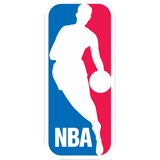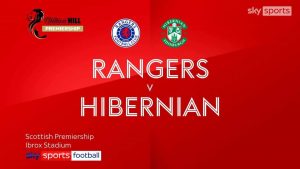Top 50 NBA players from last 50 years: LeBron James ranks No. 1


Editor’s Note: As part of a new series for his podcast, “What’s Wright with Nick Wright,” FOX Sports commentator Nick Wright is ranking the 50 best NBA players of the last 50 years. The countdown concludes today with player No. 1, LeBron James.
LeBron James’ career highlights:
- Four-time Finals MVP
- Four-time league MVP
- 18-time All-Star
- 13-time first-team All-NBA, three-time second team, two-time third team
- Five-time All-Defensive first team, one-time second team
- 2008 scoring champion
- 2020 assists leader
- 2004 Rookie of the Year
- Second on all-time scoring list
Pick any year over the past two decades, and LeBron James was one of the very best players in the NBA, if not the best. Pick any age between 18 and 37, and James was one of the very best players of all time for that age, if not the best.
He did it not by being the very best at a single thing, but by excelling at just about everything. Boasting a diverse skill set as fine-tuned as his chiseled 6-foot-9 frame, the positionless point forward represents the most complete blend of scoring, rebounding, facilitating and defending the game has ever seen.
Moreover, no one has been better for longer.
Nothing illustrates that point quite like LeBron being the youngest (21) and oldest (37) player to average 30 points, setting his career high in points in Year 3, player efficiency rating in Year 6, field-goal percentage in Year 11, rebounds in Year 15 and assists in Year 17. That impact transcends the box score, obviously. Amid being the top producer on his team in each of his 19 seasons, he appeared in eight consecutive Finals. James is a dynasty unto himself.
“LeBron’s career is so long and so incomparable,” Wright said. “At every different age benchmark of his career, he has been his best at something different.”
LeBron James is No. 1 on Nick Wright’s Top 50 NBA Players of the Last 50 Years
Nick Wright reveals his best player of the last 50 years: LeBron James.
His basketball journey was always destined to be distinct. Billed as the “Chosen One” and boldly wearing No. 23, the expectations for James upon entering the league straight out of high school were to be one of the greatest players of all time. The kid from Akron, Ohio somehow surpassed that ceiling.
At 18 years old, LeBron tallied 25 points, six rebounds, nine assists and four steals while shooting 60% in his debut. This would come to be known as another night for “King” James. After winning Rookie of the Year and guiding his hapless, hometown Cavaliers to twice as many wins as the season prior, LeBron averaged 27-7-7 the following campaign. It was a stat line four players had ever pulled off, and he was just 20 years old.
In 2006, LeBron averaged 31.4 points per game while leading Cleveland to 50 wins and its first playoff berth in eight years. He went for 32-11-11 in the opener. Two weeks later, he’d won his first series by averaging 36-8-6 versus the Wizards and hitting two separate game-winners in the final seconds. The Cavs would get bounced in the second round to the Pistons, making the East’s two-time reigning champs the only team to eliminate James in a playoff series and not reach the Finals in the same season.
LeBron exacted his revenge, nonetheless.
“The next year is when he would announce himself at 22 years old as already the single best player in basketball,” Wright said. “A title he held consecutively, uninterrupted for 13 years.”
James looked to have taken the Cavs as far as they could go with a trip to the conference finals, where they fell behind 2-0 to Detroit. Then he delivered the first masterpiece in a career full of them — the “48 Special.” With the series tied, James scored 25 consecutive points for Cleveland, 29 of 30, and all 18 across two overtimes to spark a Game 5 win.
Many are quick to recall that the underdog Cavs were subsequently swept by Tim Duncan’s Spurs, who actually featured three Hall of Famers in their respective primes. What’s often left unsaid is that James’ entire supporting cast included only one player (Zydrunas Ilgauskas) who made an All-Star team at any point in his career, and that was years prior.
LeBron led the Cavs to the second round in 2008 before running into a 66-win Celtics team that would win the title. The series still went the distance, with LBJ scoring 45 points in Game 7 but aided by just one teammate reaching double figures.
“And all of a sudden there’s a little speculation, rumblings: Could LeBron leave Cleveland?” Wright said.
His play sure didn’t hint at any half-heartedness. The young James continued maneuvering like a bullet train and won his first MVP in 2009 while directing the Cavs to an NBA-best 66 wins. He ascended even higher in the playoffs, as Cleveland swept past the first two rounds. A dream matchup with Kobe Bryant and the Lakers didn’t materialize, though, as Cleveland was edged by the Orlando Magic in the conference finals. James put up an absurd 39-8-8 for the series and sank a buzzer-beating, game-winning 3 in Game 2.
Some call it the best series he’s played.
The Cavs won 60 games the following year on the back of another MVP season from LeBron. They just didn’t make any notable additions to improve their title chances. James averaged 32-9-7 through the first eight games of the postseason but faltered in consecutive losses to Boston. Facing elimination in Game 6, LBJ posted 27-19-10 and yet the Celtics won going away.
“The famous ‘LeBron quit’ series against the Celtics,” Wright said “There is one really bad moment, but the rest of it has been drastically overstated.”
Soon after, so was his “decision” to take his talents to Miami.
While LBJ’s free-agent defection unofficially launched the player empowerment era, his superteam Heat didn’t look that much different than most championship squads through history. James, who’d grown into a stifling defender in his mid-20s, was in the middle of it all and had Miami primed to win the title. That’s when the most consistent superstar in history bizarrely crumbled in a Finals loss to Dallas. With a chance to take a commanding 3-1 lead, LeBron scored eight points and attempted just one shot in a scoreless fourth quarter as Dirk Nowitzki and the Mavericks rallied to victory. James averaged a career-low 17.8 points in the series.
There were no excuses this time. James had the better roster, his team was leading the series, and he short-circuited.
“The nadir of his career and a true crossroads,” Wright said. “He had a true — you could see it happening in real-time — meltdown. Even his biggest defenders in the world would say, it was inexplicable watching how he played in 2011.
“So how do you go from that to the greatest player ever? Quite simply, by ripping off unequivocally, inarguably, the greatest 10-year run of consecutive greatness the league has ever seen.”
It started with LeBron becoming a more efficient shooter. He set new career bests from the field and 3 en route to winning another MVP. By the time the 2012 postseason rolled around, Dwyane Wade had passed the leadership baton and James was considerably more aggressive. He broke out a 40-18-9 to tie up a second-round series against the Pacers. His roll continued in the conference finals, only the Celtics managed to win three straight and were on the brink of eliminating him for the third time in his career. A ringless James never faced more pressure than he did in Game 6.
“Boston was dancing on LeBron’s grave, saying horrible things to him,” Wright said. “They thought they had broken him.”
LeBron responded with a performance for the ages, exploding for 30 points in the first half and finishing with 45 and 15 rebounds.
“I would argue the most important game of his career,” Wright said. “Facing not just elimination but legacy devastation and team annihilation.”
James closed out his arch nemeses in Game 7 by scoring 11 points in the fourth quarter as Miami mounted a second-half comeback and returned to the Finals. The series with the burgeoning Thunder would be tight, despite the Heat winning in five as slight underdogs. James averaged 29-10-7 to narrowly outduel Kevin Durant. Those would be the most modest numbers LBJ produced in the Finals for the rest of his career.
At 27, he was still peaking.
James reset his top shooting rates while winning MVP for an unprecedented fourth time in five years. LeBron’s two-way brilliance spurred Miami to a 27-game win streak, the second-longest of all time. After burning through the opening two rounds of the 2013 postseason, the Heat cooled off against the Pacers in a conference finals that went seven games. In the clincher, LeBron made 15 of 16 free throws and led all scorers with 32 points for the win.
Slight favorites this June, Miami found itself in an even tougher clash with the Spurs in the Finals. James dropped 33-11-4 in Game 4 to tie the series before struggling from the field in a Game 5 loss. Down 10 heading into the fourth of Game 6, LBJ scored or assisted on 16 of the Heat’s first 17 points to give them the lead. He scored 16 in the final frame himself but committed a pair of turnovers in the last minute of regulation that allowed San Antonio to build a four-point cushion. A 3 from James made it a two-point contest before a missed 3 from James led to Ray Allen’s miraculous shot.
“The Ray Allen Game,” Wright said. “This is the one game of LeBron’s career that is the most unfairly regarded by NBA media and inaccurately remembered by the average fan.”
The improbability of it all also seems to have overshadowed Game 7, which saw James unleash a masterful 37-12-4. With less than 30 seconds remaining, he hit a long jumper and then sank two free throws to seal back-to-back titles and his second Finals MVP.
“I would argue it’s the greatest individual season in NBA history,” Wright said.
It’s certainly rare. James fell just one vote short of winning league MVP unanimously. He was also the Defensive Player of the Year runner-up to Marc Gasol, who wasn’t even selected to the All-Defensive first team. LeBron joined Michael Jordan as the only two players to win league and Finals MVP in consecutive seasons.
Miami’s three-peat bid fell short in a Finals rematch with the favored Spurs, who became the first champion in history to win all four games by double digits. This happened despite James’ 57%/52%/79% shooting splits. The Heat had aged quickly, particularly Wade, prompting LeBron to return to Cleveland in 2014.
Nick defends ranking LeBron James as the best player of the last 50 years
Over the weekend, Nick Wright wrapped up his Top 50 NBA Players of the Last 50 Years list with LeBron James at No. 1. After receiving the anticipated backlash, Nick defends his ranking and makes some adjustments with Nikola Jokić and Kawhi Leonard’s positions.
Naturally, the Cavaliers made the Finals right away. But with Kevin Love sidelined early in the postseason and Kyrie Irving unavailable after Game 1 against Golden State, the series is a major what-if. Surrounded by a group that is almost entirely out of the league just seven years later and without a single All-Star selection among them, LBJ carried underdog Cleveland to a pair of wins and a six-game affair. He averaged 36-13-9, leading everyone in all three categories and garnering a few Finals MVP votes despite the loss.
For the second year in a row, James’ primary defender earned the coveted award.
“He was considered by the people watching the series such a physically overwhelmingly dominant player that despite him averaging 32-11-7 across those two series, they gave both Finals MVPs to the guys guarding him — who averaged between them 17-6-3,” Wright said. “They didn’t get Finals MVPs for their offense. It’s because they slowed down LeBron, allegedly.”
After the Cavs skated through the East in 2016, they soon appeared headed toward another Finals loss. The 73-win Warriors won three of the first four games by double digits, drawing comparisons to the 90s Bulls and 80s Lakers while reigning MVP Stephen Curry was being hailed as the best player in the league.
“LeBron responds to that with the greatest and most important three-game stretch in the history of the sport,” Wright said.
With Draymond Green suspended for Game 5 in Oakland after accumulating too many flagrant points, LBJ erupted for 41 points, 16 rebounds, seven assists, three blocks and three steals. Cleveland, which also got 41 from Irving, won handily and had new life. James followed that up with 41-8-11 in another decisive victory. In a tight, muddied Game 7, James scored 11 points in the fourth quarter and blocked a fast-break layup from Andre Iguodala with the game tied late.
“The greatest defensive play in NBA history,” Wright said.
Moments later, Irving knocked down a go-ahead 3 and James sealed the historic comeback with a free throw. The Cavs are the only NBA team to rally from a 3-1 deficit in 76 years of the Finals. LeBron is the only player to lead all players on both Finals teams in points, rebounds, assists, steals and blocks.
It’s the series James points to as certifying his status as the GOAT. He wasn’t done making his case, however.
LBJ would pilot the Cavs to two more Finals appearances — dragging more aptly describes his work in the latter trek — while leading the NBA in minutes per game both years. While Cleveland proved to be no match for a dynastic Warriors squad that now featured Durant alongside its usual pack of Hall of Famers, James provided some fireworks, anyway.
In Game 1 of the 2018 Finals, he exploded for 51 points, eight rebounds and eight assists with 53%/43%/91% shooting splits.
“The single greatest game anyone has ever played in basketball,” Wright said.
Alas, it’s also known as the J.R. Smith Game, after the Cavs guard ran out the clock in regulation with the score tied. It was James’ fourth 40-point showing in that postseason, a league record, and he subsequently broke his hand in disgust of Smith’s gaffe. For the title run, LeBron averaged 34-9-9.
A few weeks later, the 34-year-old signed with the Lakers. His first season in L.A. was a lost one, as LeBron missed a third of the season with injuries and the team missed the postseason. He returned to MVP form the following year, leading the league in assists and directing the Lakers to a top seed. His 38-16-10 in Game 5 of the conference finals sealed another championship appearance. It also marked the third time he’d gone for at least 35-15-10 in the postseason. There are only eight other occurrences in league history.
In a Finals triumph over the underdog Heat, James had at least 25-9-7 in all six games and shot 59% from the field and 42% from 3. That earned him his fourth finals MVP, which trails only Jordan.
Injuries ultimately undermined his past two years in L.A., although LeBron has yet to miss a full calendar month in 19 regular seasons and never been sidelined for a playoff game. If the 37-year-old were to retire today, there hasn’t been a player more responsible for cumulative success.
Consider his records for first-team All-NBA selections (13), overall All-NBA nods (18) and top-three MVP finishes (11), coupled with sitting second all-time in player efficiency rating and win shares.
Health permitting, he’s on track to break Kareem Abdul-Jabbar’s all-time scoring record this upcoming season. There have been a few better scorers than LeBron but none more consistent. He’s averaged at least 25 points for 18 years in a row. (Durant is second with 13 consecutive campaigns.) His 51% shooting makes him one of six players to exceed 50% while averaging at least 24 points.
James’ streak of 1,096 straight regular-season games with at least 10 points is still active and dwarfs Jordan’s old mark of 866. LBJ has failed to score in double digits just once since turning 20.
Last year, he became the sixth player to record 20,000 rebounds plus assists and is the lone one to eclipse 10K in both categories. Only Jason Kidd has also topped 8,000 in each. No one in NBA history has averaged more rebounds and assists than James. He sits seventh on the all-time assists list and 10th in steals. His 38.2 minutes per game rank second to Elvin Hayes among 80-plus players to appear in 1,100 games.
LeBron’s career averages of 27-8-7 are unprecedented, as well. He’s eclipsed 25-5-5 in each of the past 18 years. No one else has hit all of those benchmarks more than nine times.
In the playoffs, LBJ’s rates climb to 29-9-7. It’s a stat line he’s produced 33 times in the postseason. Next on the list are Larry Bird, Giannis Antetokounmpo and Jordan, who have done it 33 times between them. LeBron has gone for 30-5-5 on 91 occasions. He’s followed by Jordan, with 51 instances. In 122 contests, James has posted 25-5-5. Trailing him are Jordan and Kobe Bryant, who have 123 such games combined.
The King is second to His Airness in 40-point playoff games but leads in 30-point ones. LeBron also has the most 30- and 40-point double-doubles and 30- and 40-point triple-doubles. His other postseason ranks: first in wins, games, minutes, points and steals, second in assists, sixth in rebounds and 10th in blocks.
For the Finals, he places second in points, assists and steals, fourth in rebounds and sixth in blocks. Over eight trips following the 2011 debacle versus the Mavericks, James has averaged 30-11-8. Of course, the four-time champion was the catalyst for all 10 of his teams’ appearances.
“There’s the résumé of the greatest player of the last 50 years,” Wright said. “And the greatest player of all time.”
Get more from National Basketball Association Follow your favorites to get information about games, news and more.









